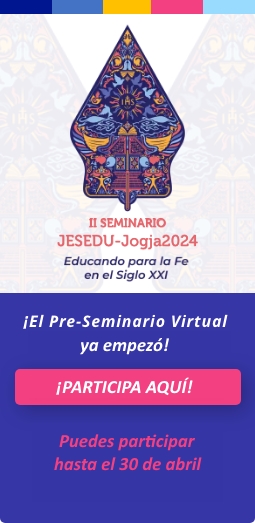On JRS Day, which was celebrated on November 14th, 2023, Fr. Bill O’Neill SJ shared a reflection on discernment in Jesuit Refugee Service (JRS) and the future development of the mission.
Bill O’Neill SJ is a professor emeritus of social ethics at the Jesuit School of Theology of Santa Clara University. He is currently working with the Jesuit Refugee Service in Nairobi, Kenya.
Reflections on discernment in JRS by Bill O’ Neill SJ
In the mission of JRS, accompaniment, service, and advocacy are distinct, but never separate: they are interwoven in all we do. But the weaving is not done once for all. Just as at the founding of JRS, we must continually discern how best to respond to the “tragic situations” of our time. At its very inception, Fr. Pedro Arrupe, then General of the Society of Jesus (Jesuits), appealed to “St. Ignatius’ criteria for our apostolic work and the recent calls of General Congregations. In the Constitutions, writes Fr. Arrupe, “St. Ignatius speaks of the greater universal good, an urgency that is ever growing, the difficulty and complexity of the human problem involved, and lack of other people to attend to the need. With our ideal of availability and universality, the number of institutions under our care, and the active collaboration of many lay people who work with us, we are particularly well fitted to meet this challenge and provide services that are not being catered for sufficiently by other organizations and groups.”Affirmed by subsequent General Congregations, these apostolic criteria were elaborated in directives of Fathers General, e.g., in the “universal apostolic preferences” promulgated by Fr. Arturo Sosa: promotion of Ignatian “Spiritual Exercises and discernment;” walking with “individuals and communities that are vulnerable, excluded, marginalized, and humanly impoverished;” accompanying “the young in the creation of a hope-filled future;” and “care for our Common Home.”
Inspired by the Church’s teaching, including Catholic social teaching, these renewed “apostolic criteria” are at play in our discerning “the greater universal good” (the magis):
(1) Whom do we accompany: Who, we must ask, are “the most vulnerable and excluded persons in our midst,” e.g., victims of rights’ violations, neglected by others or not adequately served?
(2) In light of our commitment to take the victims’ side, how can we best serve refugees and vulnerable youth (the second and third apostolic preferences), given our resources and personnel?
(3) And in view of the “difficulty and the complexity of the human problem involved,” (3) how in our mission of advocating for the forcibly displaced can we redress the systemic causes of victimization? We must, that is, redress the “economic, political, and social structures that generate injustice.”
In answering these questions, we must consider:
- “An urgency that is ever growing,” e.g., immanence of harm, particular vulnerabilities (gender, disability, age etc.), relative priority (are there certain interventions which must occur if others are to succeed).
- “The difficulty and complexity of the problem involved:” Are there certain needs which we are especially well-suited to address, e.g., given our history, material and personnel resources, etc. Collaboration across the “Jesuit network” of schools, for instance, may make us “particularly well-fitted to meet [the] challenge.” In a similar vein, our heritage of spirituality and interfaith dialogue may let us address the religious/spiritual needs of refugees and IDP’s.
- “Lack of other people to attend to the need:” in light of contributions of other agencies (NGO’s, governmental and intergovernmental, etc.); what services… are not being catered for sufficiently by other organizations and groups?
- The “magis,” concern for the greater universal good is thus comparative and a function of our strategic collaboration with other organizations and groups. A final consideration arises from this — the “multiplier effect:” where can we most effectively intervene, e.g., looking to longer-term consequences (especially for the most vulnerable), novel contributions, etc. Gender-responsive education, inclusive care and education for children with disability, care for groups historically marginalized on basis of race, ethnicity, caste, orientation, etc. may have multiple effects beyond our own immediate intervention. Education for the girl child, for instance, contributes not only to her health and well-being, but that of her children.
To continue reading please go to JRS publication here
Inicia sesión o Hazte miembro
para crear y ver comentarios
